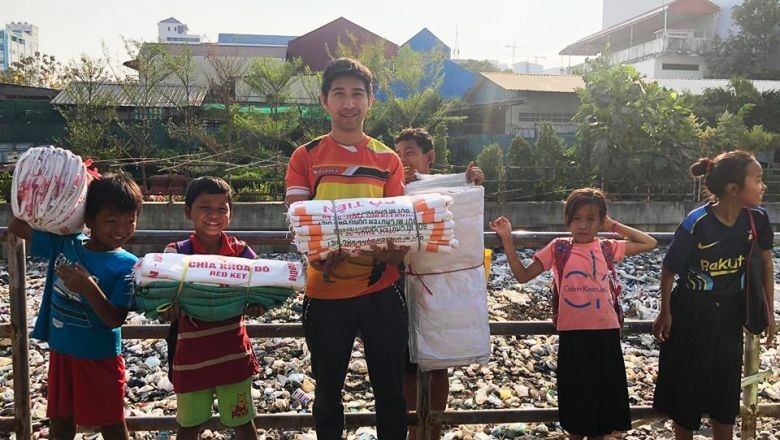Photo Credit: The Phnom Penh Post, 2019
The world is facing multiple environmental, social and economic challenges that require a response that offers growth while protecting the earth’s ecosystems and enhancing the value that developing countries derive from agriculture, fisheries and forestry. Youth in the Greater Mekong Sub-region are seen as change agents, representing more than half of their countries’ populations and tomorrow’s decision-makers. Seeking better paths to youth empowerment, Rapid Asia carried out a qualitative study with youth in Cambodia, Thailand and Vietnam, commissioned by UNESCO and UNICEF.
In 2019, a group of 30 young volunteers in Phnom Penh, Cambodia, attracted media attention after spending four months cleaning a polluted canal. The “Rubbish Youth” (as they call themselves) have since inspired others to dispose of trash properly and encourage recycling in a city that struggles with efficient waste management.
In 2019, a group of 30 young volunteers in Phnom Penh, Cambodia, attracted media attention after spending four months cleaning a polluted canal. The “Rubbish Youth” (as they call themselves) have since inspired others to dispose of trash properly and encourage recycling in a city that struggles with efficient waste management.
In Viet Nam, the Thanhnien Forum brings young people together to voice recommendations for improving the environment and combatting climate change. The Ho Chi Minh Communist Youth Union organized youth to promote “green” activism through its Green Summer Campaign.
These cases show that youth can actively address environmental challenges, whether through campaigns, public forums, or private industries. Yet, many youths still face challenges because their opportunities to participate in “green” decision-making and related activities are limited.
To provide a more robust understanding of how youth can play a more leading role in environmental sustainability, Rapid Asia developed a conceptual framework (Figure 1) showing how youth can transition into green jobs. There are three different paths to “green jobs”:
- Green entrepreneurship.
- Engagement in existing green jobs and youth-led initiatives (e.g. “Rubbish Youth”)
- Activism and policy engagement (e.g. Thanhnien Forum)
 Figure 1: Conceptual Framework
Figure 1: Conceptual Framework
Regardless of the path taken, there are three elements that can support youth in their journey: awareness, participation and empowerment. All three elements can serve as either “enablers” (factors that help push youth to attain green jobs) or “barriers” (factors that prevent youth from doing so). For example, exposure to information on environmental issues and climate change (awareness) can inspire young people to participate in the green economy. Without such initiatives, there may be little action on the part of youth due to their lack of awareness.; Young people can have a voice for environmental changes and action (participation) through forums, but without a space for meaningful dialogue, they will remain unheard. The formal education system offers another opportunity, youth can be encouraged to think critically (empowerment), but without such trainings, youth may continue to lack the skills necessary for leadership.
Considering the above, the removal of the barriers in regard to awareness, participation, and empowerment is key for ensuring greater inclusivity of youth in the green economy. The study provided several main recommendations to achieve this.
- Youth should be included in decision-making processes. While this will undoubtedly involve addressing deep-seated hierarchal structures within communities that exclude youth, education in schools can play a facilitating role.
- In order to address the lack of capacity amongst youth, adults should also be provided with the knowledge and skills necessary to work with youth and be encouraged to invest in building their skills.
- While some businesses have already support green jobs, governments can assist by prioritizing the green economy in their policies through formal training to support access to the green labour market.
Youth in the Greater Mekong Sub-Region have a chance to play a leading role in the sustainability of their countries’ economies. Hopefully, the conceptual framework will provide a clear guide for those wishing to provide youth with such opportunities. The report titled: Greening the Mekong: Action for a Greener Economy with Children and Youth will come out soon, but a summary brief can be found here.
About the authors: Daniel Lindgren is the Founder of Rapid Asia Co., Ltd. a social research and consulting firm based in Bangkok that specializes in evaluations for programs, projects, social marketing campaigns and other social development initiatives. David Young is an independent consultant working with Rapid Asia as a member of their expert panel of consultants. Learn more about our work at www.rapid-asia.com.

